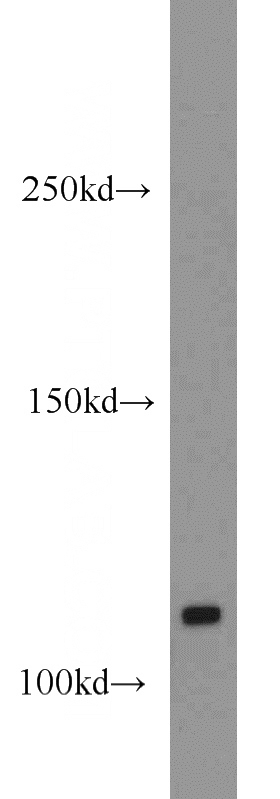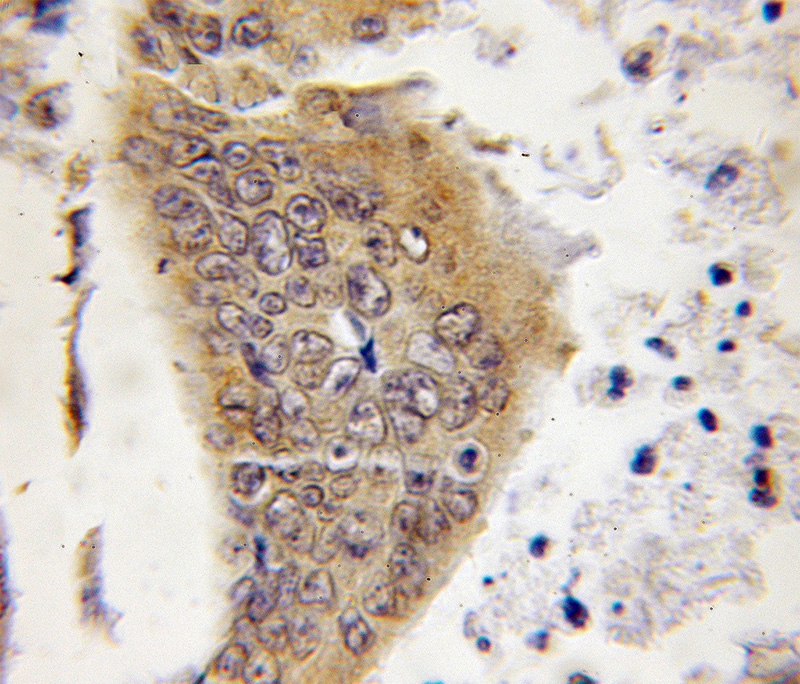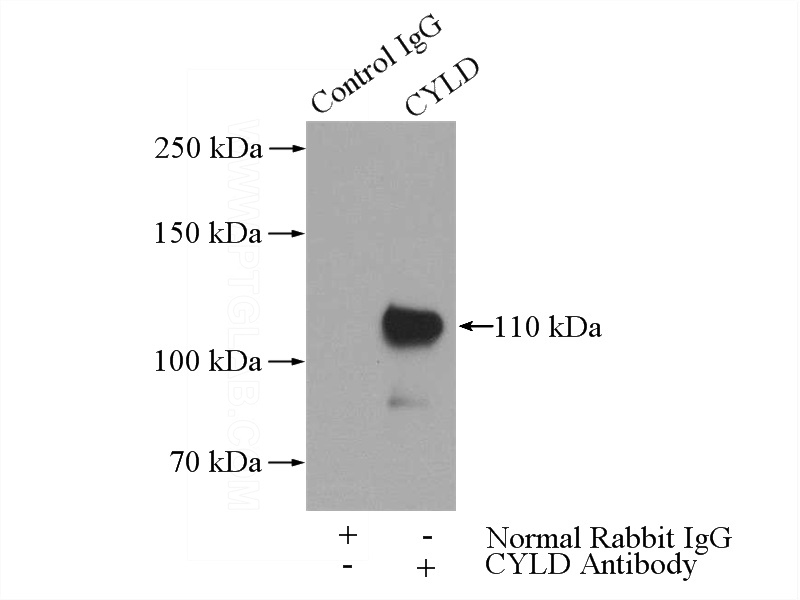-
Product Name
CYLD antibody
- Documents
-
Description
CYLD Rabbit Polyclonal antibody. Positive IP detected in mouse brain tissue. Positive WB detected in A431 cells, HEK-293 cells, Jurkat cells, mouse brain tissue. Positive IHC detected in human colon cancer tissue, human brain tissue, human colon tissue. Observed molecular weight by Western-blot: 110kd
-
Tested applications
ELISA, WB, IHC, IP
-
Species reactivity
Human,Mouse,Rat; other species not tested.
-
Alternative names
CDMT antibody; CYLD antibody; CYLD1 antibody; CYLDI antibody; Deubiquitinating enzyme CYLD antibody; EAC antibody; FLJ20180 antibody; FLJ31664 antibody; FLJ78684 antibody; HSPC057 antibody; KIAA0849 antibody; MFT antibody; MFT1 antibody; SBS antibody; TEM antibody; Ubiquitin thiolesterase CYLD antibody; USPL2 antibody
-
Isotype
Rabbit IgG
-
Preparation
This antibody was obtained by immunization of CYLD recombinant protein (Accession Number: XM_017022979). Purification method: Antigen affinity purified.
-
Clonality
Polyclonal
-
Formulation
PBS with 0.1% sodium azide and 50% glycerol pH 7.3.
-
Storage instructions
Store at -20℃. DO NOT ALIQUOT
-
Applications
Recommended Dilution:
WB: 1:200-1:2000
IP: 1:200-1:1000
IHC: 1:20-1:200
-
Validations

A431 cells were subjected to SDS PAGE followed by western blot with Catalog No:109678(CYLD antibody) at dilution of 1:500

Immunohistochemical of paraffin-embedded human colon cancer using Catalog No:109678(CYLD antibody) at dilution of 1:50 (under 10x lens)

IP Result of anti-CYLD (IP:Catalog No:109678, 4ug; Detection:Catalog No:109678 1:300) with mouse brain tissue lysate 4000ug.
-
Background
CYLD, also named as CYLD1, belongs to the peptidase C67 family. It is the protease that specifically cleaves 'Lys-63'-linked polyubiquitin chains. CYLD has endodeubiquitinase activity and plays an important role in the regulation of pathways leading to NF-kappa-B activation. CYLD contributes to the regulation of cell survival, proliferation and differentiation via its effects on NF-kappa-B activation. It is a negative regulator of Wnt signaling. CYLD inhibits HDAC6 and thereby promotes acetylation of alpha-tubulin and stabilization of microtubules. CYLD plays a role in the regulation of microtubule dynamics, and thereby contributes to the regulation of cell proliferation, cell polarization, cell migration, and angiogenesis. It is required for normal cell cycle progress and normal cytokinesis. CYLD inhibits nuclear translocation of NF-kappa-B and plays a role in the regulation of inflammation and the innate immune response, via its effects on NF-kappa-B activation. It is dispensable for the maturation of intrathymic natural killer cells, but required for the continued survival of immature natural killer cells. CYLD negatively regulates TNFRSF11A signaling and osteoclastogenesis. This antibody is a rabbit polyclonal antibody raised against residues near the C terminus of human CYLD.
-
References
- Ni F, Zhao H, Cui H. MicroRNA-362-5p promotes tumor growth and metastasis by targeting CYLD in hepatocellular carcinoma. Cancer letters. 356(2 Pt B):809-18. 2015.
- Li D, Jian W, Wei C. Down-regulation of miR-181b promotes apoptosis by targeting CYLD in thyroid papillary cancer. International journal of clinical and experimental pathology. 7(11):7672-80. 2014.
Related Products / Services
Please note: All products are "FOR RESEARCH USE ONLY AND ARE NOT INTENDED FOR DIAGNOSTIC OR THERAPEUTIC USE"
